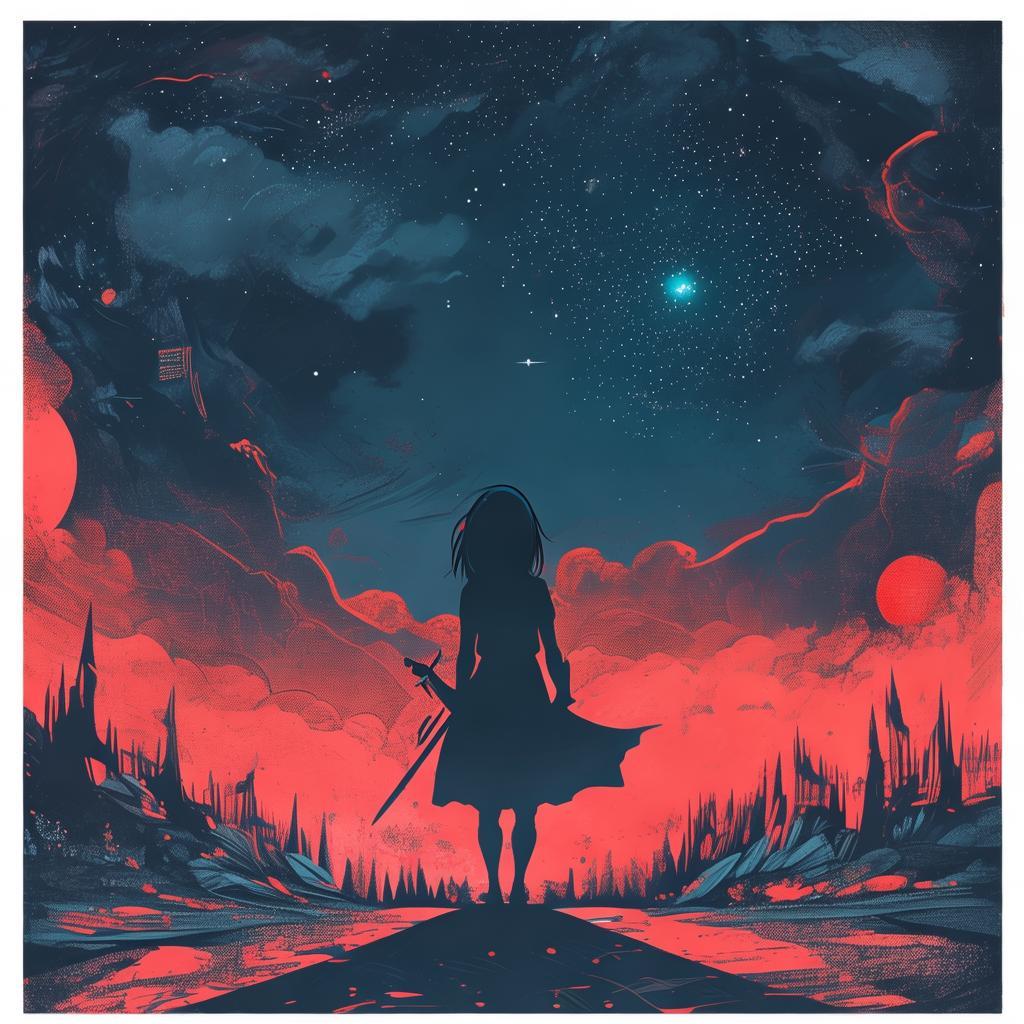The Mockingbird's Whisper: Echoes of a Wounded World
In the desolate wasteland that once was the vibrant heart of the city, the child wandered aimlessly. The war had left nothing but ruins, and the sounds of fighting were a distant memory, replaced by the eerie silence of a world that had stopped breathing. But amidst the silence, there was a song, a haunting melody that seemed to come from everywhere and nowhere.
It was the Mockingbird's Lullaby, a song that the child had heard since birth, whispered by the wind or sung by the mockingbird itself. The lyrics were simple, almost like a prayer:
Hush, little baby, don't you cry,
The mockingbird's lullaby will keep you by.
But the child knew that the world outside was anything but peaceful. The lullaby was a comfort, a promise of safety in a world that had none to offer. And so, the child carried on, the song a constant companion, a reminder of a time when the world was not so broken.
One day, while foraging for food in the ruins, the child stumbled upon an old, tattered book. It was a journal, filled with sketches and notes, and the child's eyes were drawn to a particular page. There, in the midst of the chaos, was a drawing of a mockingbird, and next to it was a note that read, "The Mockingbird's Lullaby was a gift from the old world, a promise of peace that was never fulfilled."

Intrigued, the child opened the journal to the next page, and there was a list of names, each followed by a date and a place. The child's heart raced as they realized that the dates and places were coordinates, marking the locations where the lullaby had been sung. Each one was a story of hope and survival, of a world that had fought to hold onto the promise of peace.
The child knew they had to follow these coordinates, to find the places where the lullaby had been sung and to uncover the secrets that lay hidden within. The journey was perilous, filled with dangers both seen and unseen. The child faced bandits, starvation, and the ever-present threat of death, but the Mockingbird's Lullaby was a beacon, a guiding light in the darkness.
As the child traveled, they encountered people who had also heard the lullaby, each with their own story of survival. Some had been saved by the song, others had taken it upon themselves to spread its message. The child learned that the lullaby was more than just a song; it was a symbol of resistance, a reminder that even in the darkest times, hope could be found.
Finally, the child arrived at the last coordinate, a small, forgotten church in the heart of the wasteland. There, in the ruins of the altar, was an old, broken gramophone, its needle stuck on a record. The child carefully lifted the needle, and the Mockingbird's Lullaby filled the air, echoing through the ruins.
The child understood then that the song was not just a lullaby for the child, but for the entire world. It was a reminder that hope was a powerful force, capable of overcoming even the darkest of times. And as the last note of the lullaby faded into silence, the child knew that they had to carry on, to spread the message of the Mockingbird's Lullaby, to let the world know that peace was still possible.
The child left the church, the Mockingbird's Lullaby now a part of their own story, a song that would resonate with every heart that had ever heard it. And in the silence of the world, the child's voice could be heard, singing a new lullaby, one that promised a future of peace and hope.
✨ Original Statement ✨
All articles published on this website (including but not limited to text, images, videos, and other content) are original or authorized for reposting and are protected by relevant laws. Without the explicit written permission of this website, no individual or organization may copy, modify, repost, or use the content for commercial purposes.
If you need to quote or cooperate, please contact this site for authorization. We reserve the right to pursue legal responsibility for any unauthorized use.
Hereby declared.









